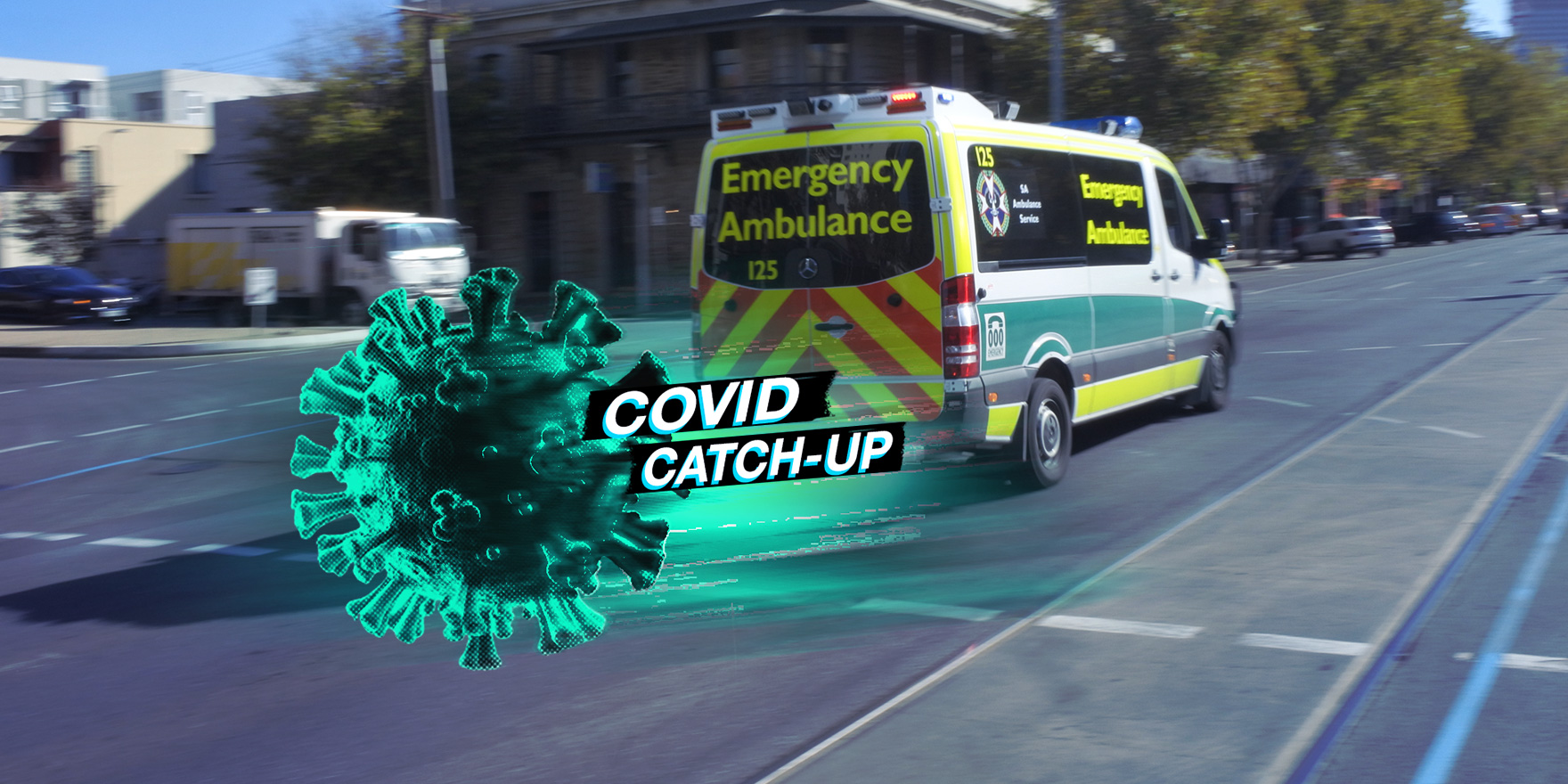And the protection of booster doses starts to wane at around four months.
Welcome to The Medical Republic’s Covid Catch-Up.
It’s the latest covid-19 news in one convenient post. Email bianca@biancanogrady.com with tips, comments or suggestions.
14 Febuary
- Another monoclonal antibody could bite the dust against Omicron sublineage BA.2.
- Vaccine protection wanes after four months, even after booster dose.
- Previous infection offers less protection against reinfection with Omicron than with Delta.
- Aged care visitation advice now allows for one essential visitor even during outbreaks.
More possible bad news on the monoclonal antibody front, with a non-peer-reviewed preprint study suggesting that the covid treatment sotrovimab – which was still effective against Omicron – may have less neutralising power against the Omicron sublineage BA.2.
The study, published on BioRxiv, tested a panel of 19 monoclonal antibody treatments which target the SARS-CoV-2 spike protein against a range of Omicron sublineages. This revealed that 17 of the 19 treatments either had no neutralising capacity or severely impaired neutralising effects against the Omicron sublineage BA.2, which is currently increasing in frequency in Australia.
Unfortunately, this included sotrovimab, which is so far the only clinically approved monoclonal antibody that still works against Omicron.
However one monoclonal antibody, bebtelovimab – which has just been authorised by the US Food and Drug Administration – that worked against all the Omicron sublineages. The authors said this suggests there is a section of the spike protein that is not yet affected by any SARS-CoV-2 mutations so far.
Over the last 60 days, the BA.2 sublineage has accounted for around 1% of covid infections in Australia; the even-more-transmissible subvariant is now outpacing the spread of the original Omicron in many countries.
19) It now seems the @WHO is getting very concerned about #BA2 variant outcompeting and displacing old #Omicron. @mvankerkhove is now warning about likely looming surge. We must be vigilant.
— Eric Feigl-Ding (@DrEricDing) February 12, 2022
HT @Cleavon_MD. pic.twitter.com/k3b8GWObYU
The protection offered by mRNA boosters against severe infection with Omicron starts waning at around four months after vaccination, new research suggests.
A study published in Morbidity and Mortality Weekly Report analysed more than 241,000 emergency department encounters and 94,400 hospitalisations between 26 August 2021 and 22 January 2022 to assess the effectiveness of two and three doses of covid vaccines against Delta and Omicron.
They found that during the period when Omicron was the dominant variant, three doses of vaccine were 87% effective against emergency department visits and 91% effective against hospitalisations, but this declined to 66% and 78% respectively at four or more months after the third dose.
At five months, a double-dose of vaccine was only 37% effective against emergency department visits, and three doses were 31% effective, although the authors noted that the number of people who had had three doses five or more months ago was very small.
Overall, both two and three doses of vaccine were less effective against Omicron than against Delta, but vaccine effectiveness was higher after the third dose compared to the second dose.
“The finding that protection conferred by mRNA vaccines waned in the months after receipt of a third vaccine dose reinforces the importance of further consideration of additional doses to sustain or improve protection against covid-19-associated ED/UC encounters and covid-19 hospitalizations,” the authors wrote.
Previous covid infection offers much lower protection against infection with Omicron than it did against earlier SARs-CoV-2 variants, research suggests.
A letter published in the New England Journal of Medicine reports on a retrospective case-control study involving around 450 people with documented covid reinfection and 9000 with primary infection, since the start of the pandemic.
Even accounting for vaccination status, researchers found that any previous covid infection was around 90% protective against reinfection with the Alpha variant, around 92% protective against reinfection with Delta, but only 56% protective against infection with Omicron.
The good news was none of the reinfections were critical or fatal, and protection against severe illness was similar regardless of the variant.
Aged care residents can now have one nominated essential visitor who is allowed to visit even during an outbreak, as long as they follow requirements on PPE and testing before visiting, according to new guidelines.
Recognising the negative impacts of social isolation on those in residential aged care facilities, the Australian Health Protection Principal Committee has released interim guidance for managing public health restrictions in aged care.
The new advice allows for one essential visitor, and volunteers, to continue visiting a resident if restrictions are in place, as long as they follow the same guidelines on PPE and testing as facility staff.


